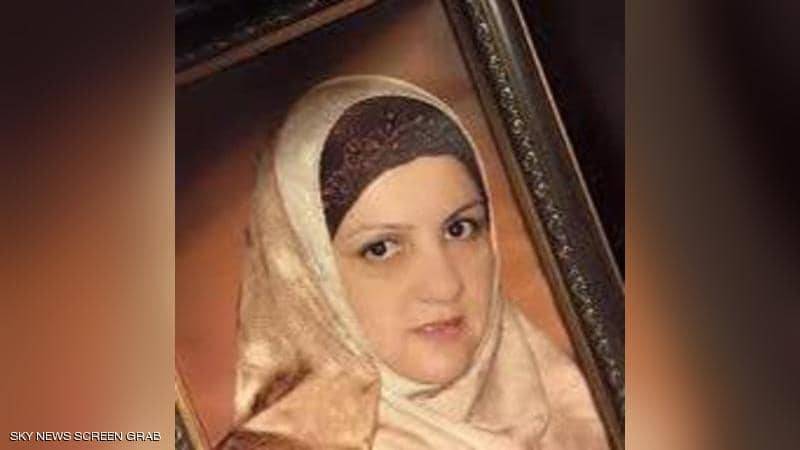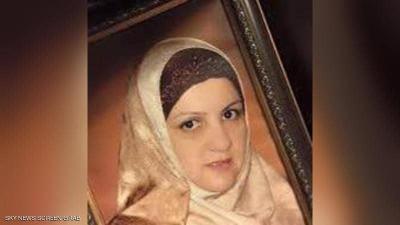Under the title "Latifa Kassir: A Sad Ending to a Painful Story in the Records of Lebanese Women," Sky News reported that despite more than 11 years having passed, the aftermath of the tragic story of Lebanese young woman Latifa Kassir, who was murdered by her ex-husband in the south of the country after being brutally beaten, still haunts her family. The killer was a drug addict, and despite the victim's family advising him to abandon his harmful ways and treat his wife humanely, he showed no change in behavior and continued to use violence as a means of communication with his wife until he committed his horrific crime.
On April 13, 2010, news of Latifa Kassir's murder shocked the town of Deir Qanoun al-Nahr in the Tyre district and the surrounding villages. Two years later, in 2012, the court of criminal appeals in Mount Lebanon sentenced Ibrahim Taleb (the victim’s ex-husband) to 18 years of hard labor after it was established that he had "placed a piece of cloth over his wife's mouth, leading to her death." It is known that the deceased supported the household for nine years, and her husband only divorced Latifa after receiving $10,000. However, he couldn't bear the idea of their separation and returned to seek revenge.
The latest development in the case occurred on June 22 of last year when the civil court of appeal in Mount Lebanon, presided over by Judge Amira Shahrour, accepted the request to reduce the sentence filed by the convicted man, relieving him of one-sixth of his penalty, equivalent to 36 months out of a total of 216, provided he remains under supervision through a social worker assigned for that purpose. In justifying the decision, the judge stated that the killer's crime "is not among the crimes exempt from the penalty reduction grant according to the law," which, according to legal experts, requires calls for including crimes of violence against women among the offenses excluded from penalty reductions.
Victim's Family
On Wednesday morning, the brother of the victim, journalist Qassem Kassir, tweeted: "My sister was wronged twice." Qassem Kassir told Sky News Arabia: "The criminal has been released, and he is trying to travel, but we are working to prevent him and keep him under supervision. As a family, we are following the case in order to reopen the issue of the reduction decision because this decision was based on incorrect information." He added, "We approached Judge Amira Shahrour, who made the ruling, and the Supreme Judicial Council to review the judgment, as his release encourages the commission of other crimes." He further noted, "Ibrahim Taleb is from the town of Shihabiya in southern Lebanon, which is adjacent to the town of the victim's family, and I call on all human rights organizations concerned with violence against women to work towards amending the penalty reduction law to exclude the murder of women."
Victim's Family Lawyer Ashraf Al-Moussawi told Sky News Arabia that he filed a request to suspend the penalty reduction, "but I discovered that there was no personal right waiver in the file, and that there is a repetition in the crime of drug abuse." The lawyer added, "I attempted to file a request to postpone his release, but the civil court (the chamber examining penalty reduction cases) rejected it. According to the law, the court is restricted, but, for humanitarian reasons, it could have delayed his release given the risk it entails." Al-Moussawi continued: "Currently, we have prepared a travel ban against him and have filed a lawsuit. We will listen to him soon, and we will not rest until the penalty he received reduction from is enforced. We have been informed that he has started to harass the family under the pretext of wanting to see his children."
Human Rights Demands
Additionally, Layla Awada, the legal service coordinator at the organization "Kafa" (Enough Violence and Exploitation), told Sky News Arabia that her organization "raised its voice demanding stricter penalties for crimes of killing women, and instead, the civil court of appeal examining cases of penalty reductions issued a decision to reduce the sentence of Latifa Kassir's killer." She explained, "The criminal court in Mount Lebanon sentenced him to 18 years in prison at the time, and this period did not fit the crime committed." The human rights activist noted that "perpetrators of crimes against women often do not receive stringent and deterrent penalties, especially given the slow pace of trials. Today a killer of Latifa Kassir is released due to his penalty being reduced to one-sixth, and tomorrow, other murderers will follow suit if we accept this precedent."
Layla Awada concluded, "There must be an emphasis on severe penalties for crimes against women if we want to combat violence against them, especially domestic violence, and crimes of domestic violence should be excluded from the provisions of the penalty reduction law."




